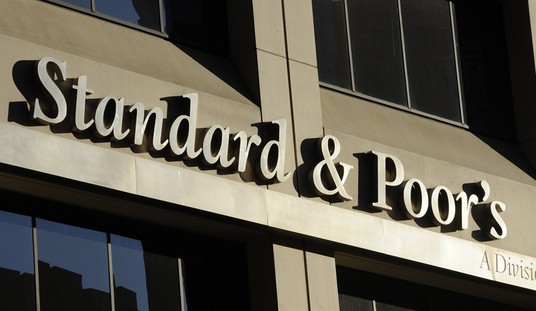As Tonto once said to the Lone Ranger, “What do you mean ‘we,’ Kemosabe?”
The temptation here is to blame Fauci for once again “underselling” the vaccine, inadvertently discouraging people from getting vaccinated by suggesting that pandemic life will carry on as is even for those who’ve been immunized. He is guilty of that to some degree, but he allows that life will be much closer to the pre-pandemic normal this fall after a meaningful share of the population has had the vaccine than it is now. He’s not going to ask people to shut themselves in their homes again — I think. But full normalcy in which the masks come off should depend on how prevalent the virus is in one’s community, he says. If it’s circulating widely, as it seems to do in colder weather, more precautions will need to be taken.
Which raises an ethical question: What duty of care, if any, do those who’ve been vaccinated owe to those who’ve refused? If, say, two-thirds of the local population has been immunized by fall but a stubborn third continues to hold out, should the first group do anything to try to limit transmission of the virus to the second group? Wear a mask while in a crowd, for instance? It’s not a wholly altruistic calculation.The larger the unimmunized population is, the greater the chance that the virus will spread and eventually mutate into a vaccine-resistant strain. By taking minor precautions against transmission, those who’ve had the shot will be protecting their own immunity.
Dr. Fauci says that it's "possible" that Americans will be wearing masks in 2022.
"When it goes way down and the overwhelming majority of the people in the population are vaccinated, then I would feel comfortable in saying, you know, 'We need to pull back on the masks'" #CNNSOTU pic.twitter.com/Pyry7HlqnR
— CNN Politics (@CNNPolitics) February 21, 2021
The fewer cases there are, the more the masks can come off, Fauci says, reasonably. But there’s a hitch. At one point he notes that 20,000 cases per day in the U.S. would be far too many for him to be comfortable with a total return to normalcy. Since March 31 of last year, the U.S. has *never* had a week where the daily average of cases has dropped below 20,000 per day. We can get there in theory — it’s a simple matter of vaccinating as many people as possible and then letting nature take its course among the unvaccinated until they’re mostly immune too. But all it would take to upend that is a new vaccine-resistant strain emerging, as has already happened in South Africa and Brazil. Is, say, 5,000 cases nationally per day a realistic target given that dynamic?
One X factor in how the vaccinated should cope with the unvaccinated population is whether the virus remains fully transmissible by people who’ve been immunized. If those who’ve had both shots can still easily infect those who haven’t, we’ll need a more robust set of precautions than we would if the vaccine significantly reduces transmission as well. The latest good news from Israel is that Pfizer’s shot *does* meaningfully reduce infectiousness, not just the odds of being hospitalized or killed by COVID:
The vaccine, which is being rolled out in a national immunization program that began Dec. 20, was 89.4% effective at preventing laboratory-confirmed infections, according to a copy of a draft publication that was posted on Twitter and confirmed by a person familiar with the work. The companies worked with Israel’s Health Ministry on the preliminary observational analysis, which wasn’t peer-reviewed. Some scientists disputed its accuracy.
Scientists warned afterward that actual real-world reductions in transmission probably aren’t as high as 89 percent due to quirks in the study’s methodology but any evidence of the vaccine making people less infectious is wonderful news for obvious reasons.
Israel’s pulling out all the stops to encourage people to get their shots, from promotions offering free pizza or liquor to those who show up to get jabbed to farming out distribution to stores like Ikea. But the strongest incentive of all is one that’s largely missing from American PR efforts, including Fauci’s spiel in the clip above — dangling the prospect of returning to normal in the near term for those who get vaccinated.
Israel lifted restrictions on most commerce and public activity, opening malls, markets and museums—and requiring the use of a pass to document vaccination status for some activities…
The opening up and use of what officials are calling green passports, which allow people to enter gyms and hotels and eventually embark on quarantine-free travel, set up a test for one of the most closely watched countries during the pandemic: Can Israel return to relative normalcy without slipping back into peak infection rates and overwhelming its healthcare system?
To strike that balance, officials are warning those who shun the national vaccination campaign that they will be shut out of everyday activities. “Anyone who does not get vaccinated will be left behind,” Israel’s health minister Yuli Edelstein said.
As thousands of people rushed to download the “green passport” documents, the website crashed Saturday night. The Health Ministry said people could use their vaccination certificates in the meantime.
Israel’s telling people “hurry up and get your life back!” and our media’s running stuff like this:
You’re fully vaccinated against the coronavirus — now what? Don’t expect to shed your mask and get back to normal activities right away. That’s going to be a disappointment, if not a shock, to many people. https://t.co/FTNvDgcr9r
— NBC New York (@NBCNewYork) February 22, 2021
My soon-to-be fully vaccinated parents were set to start dining out again next month but I suppose perpetual shut-in status isn’t so bad. Anyway, I think Fauci’s just playing his usual “manage expectations” game. Will life be a lot more normal by fall? For sure, especially with most of the population destined to blow off his warnings about wearing masks to protect the unvaccinated. Can he guarantee that life will stay normal if we all throw caution to the wind and get back to summer 2019 mode? Well, no. The variants are too unpredictable and the size of the total U.S. population that’ll still be vulnerable to COVID come this fall is too uncertain. So he’s erring on the side of caution. He blew it on masks last winter by not encouraging their use early enough; he might be inclined now to stick with them longer than is necessary, not wanting to trigger a new outbreak somewhere by taking them off too soon.
Here’s Scott Gottlieb in sync with Fauci during an interview this morning. He expects much more normalcy this summer as vaccinations ramp up and the virus recedes for seasonal reasons, with kids back in summer camp. Next winter is more of a question mark as the virus resurges. I assume we’ll end up with a red state/blue state disparity, as Democrats are more willing to get the vaccine and to stick with precautions like masks and social distancing according to polling. We’d expect blue states to have an easier time with what’s left of the pandemic a year from now, then. Whether their economies can stand another round of distancing, whether enforced by the state or enforced informally by citizens’ behavior, is a separate question.
"If we are in a low prevalence environment this spring and summer I think I'm going to be pretty comfortable allowing my kids get back to normal activity," says @ScottGottliebMD. "I would expect kids to be in summer camp." pic.twitter.com/5T28R8j5UL
— Squawk Box (@SquawkCNBC) February 22, 2021








Join the conversation as a VIP Member